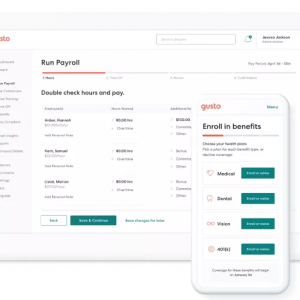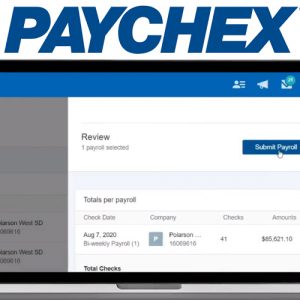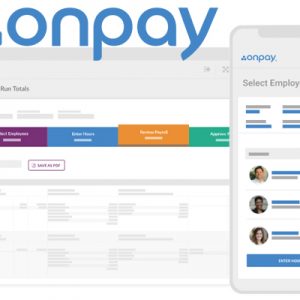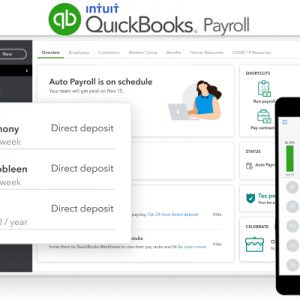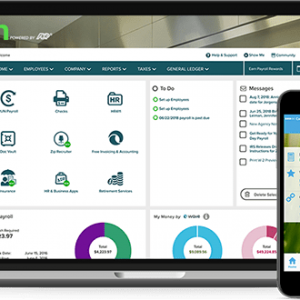Remote workforces like the laws that govern remote payroll services are not new. The game-changer was COVID-19 prompting enterprises to online payroll services. The changes set into motion business continuity and workforce expansion opportunities — both supported by online payroll services.
Yet, for employers and their remote workforce, the variances of tax laws from state to state and localities are the highest potential impact to payroll services withholdings and employer liabilities.
Today the best payroll services are assisting small business payroll to retain its workforce and livelihood. Making an effort to continue business small business enterprises reduced their on-site employee base opting to include the new payroll trend of working remotely.
Payroll companies providing online payroll services were ready with the essential tools to keep a small business operating, payroll services compliant, and the remote workforce working. Once again, business online payroll automation features are keeping track of hours and work locations for employers.
In a moment when the world anxiously waited, payroll companies integrated the best payroll software seamlessly as a business continuity solution. Across the nation, online payroll services set a new path for business growth and access for remote workers, allowing them to sign in, report time worked, and seek employment inquires via at-home computer or mobile devices.
City, State, And Federal Regulations
Payroll providers are in the business of processing payroll across multiple states. One central area of concern is the resident’s withholding state rate since the rates vary state by state. Liabilities for the employer and its employee are potentially being subjected to pay dual state taxes. For the employer not being registered to conduct business in both states just adds fuel to the fire.
Business online payroll enterprises looking to take advantage of the expanded remote workforce possibilities could find themselves in violation of payroll regulations. Here’s why. Only seventeen states, including the District of Columbia, have what is termed as a reciprocity agreement.
Reciprocity agreements were created to allow residents of one state to work in another state. The agreement makes the employee exempt from having the working state’s taxes deducted from their paychecks. The same rule applies if the existing small business employer physically relocates to another state and decides to keep its original workforce in place remotely.
Why? Rules and payroll compliance change from the city, state, to federal jurisdiction. Payroll companies can answer your questions, walk small businesses through process of registering or complete the registration process for enterprise.
Managing Online Payroll Solutions
Managing payroll services for small business requires time and accurate detailing to prevent non-compliance violations and penalty costs. Payroll regulators are looking for payroll compliance of employee classification records reporting exempt (salary), non-exempt (hourly wages), and place of work locations. With all the advantages of a remote workforce, employer’s need to review and monitor each work location for correct employee classifications.
Enterprises of all sizes are going back to the drawing board to review and monitor the current payroll practices and company policies. If it hasn’t already been done — it’s time to update payroll and HR policies aligned with business strategies.
Payroll services are prepared to share the burden and the solutions to supporting the remote workforce with the best payroll services. The best payroll software takes each sequel through a progression chain of events to consistently achieve successful online payroll processing.
Explicitly programmed for payroll services for small business are features to track hours for each category of a remote worker. Unlike hourly wage employees, salary workers are not eligible for overtime pay. Although many salary workers put in extra hours, they are paid higher salary wages to compensate for the additional work hours. Both categories are subject to state and federal withholdings when processing payroll taxes.
Top Ten Best Picks for Payroll Services
Building Stronger Relationships
Payroll administrators carry the stress of meeting payroll deadlines and employer obligations to support the company’s presence helping to establish strong relationships with their employees.
In today’s marketplace, payroll services for small business is an investment for the growing company with limited time to concentrate on the latest payroll software or the anxiety of payroll compliant enforcement. Partnering with a payroll provider can help relieve the stress and improve the company’s productivity by managing this innovative resource online.
Let the payroll provider handle the complex parts, from keeping track of payroll deductions by city, state, and federal requirements to coordinating the employer’s tax filing deposits and payments.
Too often, small businesses see this hand-off as a loss of control or an added expense- not true. Business online payroll is an expansion opportunity, and online payroll services are an affordable expense for an upward mobile business.
The enterprise remains the point of contact for the company’s infrastructure and connections with its employees.
Employer vs. Employee Geography
Payroll services for small business is a challenge with current trend of remote workers. Risks increase for employers without a good understanding of the payroll requirements. For the employer, the remote payroll processing could highlight in-house inadequacies in the current systems to support payroll administrators.
The findings are good even though disappointing. It is a matter of sitting down with the company’s users to understand what works and what causes delays or difficulties for payroll processing. Generally, the solutions involve system and process training sessions on updates that need to be documented in the company’s procedural policy.
One problem associated with outdated online payroll services is timekeeping. There’s a certain amount of trust in play with the introduction of remote workforces. Verifications of accurate hours being reported can be a challenge without the latest automation system to update data and records in real-time.
Automation is programmed to track an increase in activity or processing patterns for paychecks. Security levels should be in place to monitor unusual activity to prevent systems abuse. Unfortunately, it happens. Without a second set of eyes watching, the consequences can get expensive.
Fundamental Remote Work Forces
The benefits of best the payroll software for business online payroll are the added business values, strengthening the small business’s internal payroll management policies. An experienced payroll provider’s insight can keep the company in good standing with on-time and accurate reporting, employees go about doing what they do best — working.
One area that calls attention to the new workplace environments is remote communications through some form of mobile device. Because secured systems are part of daily interactions, small business payroll services play an integral role in protecting sensitive and confidential information.
The primary concern are the numbers and types of devices, and the multiple locations of the device being used by the remote workforce — opening the door to a critical problem for in-house business online associated with data exposure potentials.
For small businesses, the expense to protect data and information at these levels of work performances need to be compared to the cost of consequences should it occur.
When choosing the best payroll service, look for one that understands the changing work environments and small business payroll compliance. For successful payroll processing it is about the company’s business strategy, the online payroll technology, and the right payroll provider. Small business online payroll services offer expertise to support employers and remote workers across the nation.

